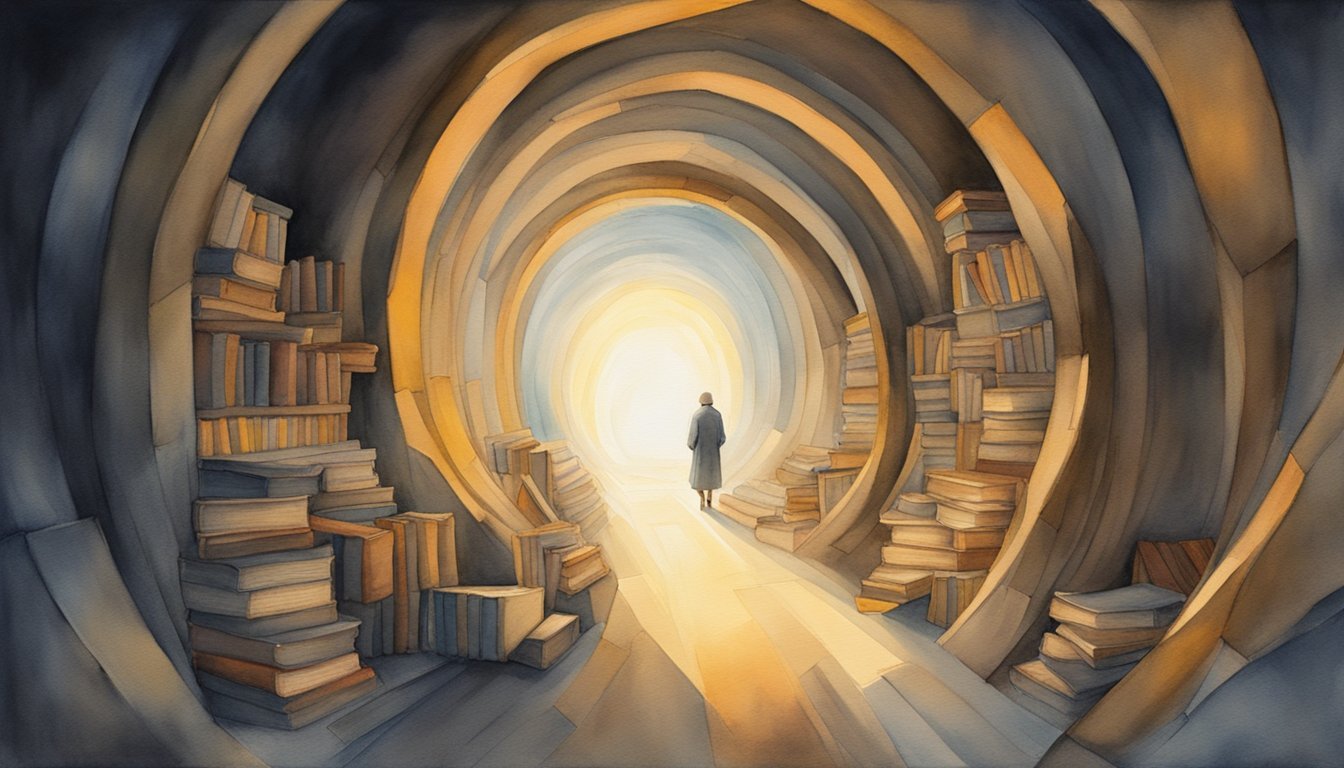Understanding the Afterlife
The afterlife has been a subject of human curiosity and belief since ancient times, encompassing a range of concepts that differ across cultures and have been influenced by both religious interpretations and scientific inquiries.
Concepts of Afterlife Across Cultures
Different societies have varying beliefs about the afterlife, often reflecting their broader worldview and spiritual traditions. For instance, many Christians believe in heaven and hell, with the afterlife being an eternal dwelling place for souls based on their earthly actions. In contrast, the concept of reincarnation, prominent in Hinduism and Buddhism, sees the soul undergoing a cycle of death and rebirth until it reaches a state of enlightenment. These visions of life after death are integral to numerous religions and philosophies, showing the afterlife as a deeply rooted aspect of human consciousness seeking to understand the universe and existence.
Scientific Perspectives on Consciousness after Death
Scientifically, the quest to understand consciousness and its survival after death has led to significant research. Studies on near-death experiences (NDEs) reveal that many individuals have reported vivid encounters and visions during moments when they were clinically dead or close to death. Although some scientists attribute NDEs to brain chemistry, others entertain the possibility of consciousness existing independently of the brain, suggesting a form of life after death. The idea of an afterlife intersects with disciplines ranging from neurology to quantum physics, as researchers attempt to explain these phenomena within the laws of the universe.
Historical Anecdotes and Transformational Experiences
Throughout history, personal testimonies and anecdotes have been a compelling part of the conversation on the afterlife. From accounts like Jesus’ resurrection in Christian theology to transformational experiences that have long been described in many cultures, such stories have reinforced the belief in an existence beyond death. These historical accounts often share commonalities, such as life reviews or encounters with beings of light, that continue to pique curiosity and drive the study of the human soul and its potential journey post-mortem. The study of these experiences and their impact on individual belief systems remains a point of interest in the examination of the afterlife.
Evidences and Studies

In the quest to uncover the mystery of whether an afterlife exists, various scientific studies and testimonies have provided intriguing evidences that continue to be the subject of intense research and debate. This section delves into some of the most compelling research across different scientific and experiential dimensions.
Clinical Research on Near-Death Experiences
Research at the University of Virginia’s Division of Perceptual Studies has been central to exploring near-death experiences (NDEs). Notable figures like Bruce Greyson have documented cases where individuals report vivid experiences involving light and encounters with deceased loved ones while their brain function appears severely compromised. These occurrences challenge understandings of consciousness and brain activity at the edge of death.
Testimonies of the Afterlife and Verifiable Cases
Some individuals claim to have had transformative interactions during NDEs which assured them of the afterlife’s existence. Additionally, there are rare but notable instances where people report seeing events or gaining information while declared clinically dead – information that was later verified and seemed beyond the scope of hallucinations. The work of Sam Parnia advances the conversation on death and consciousness, investigating the quality of these testimonies.
Investigating Past-Life Memories
Exceptional claims of past-life memories, often found in children, have been taken seriously by researchers. Psychiatry and parapsychology intersect in studies of individuals recounting detailed and specific memories of lives they should have no knowledge of, with some details correlating to historical facts. This has implications on understanding the continuity of personal identity and consciousness beyond one’s current life.
Role of Medical Science and Paranormal Research
Medical science contributes to this discussion through neurological examinations and brain scans, seeking to decipher whether experiences of the afterlife are rooted in identifiable brain functions or if they represent something beyond current scientific explanation. Psychiatrists and neuroscientists strive to differentiate between transformative experiences and mental health phenomena, while mediums and practitioners in the field of parapsychology pursue insights from a non-conventional angle.

